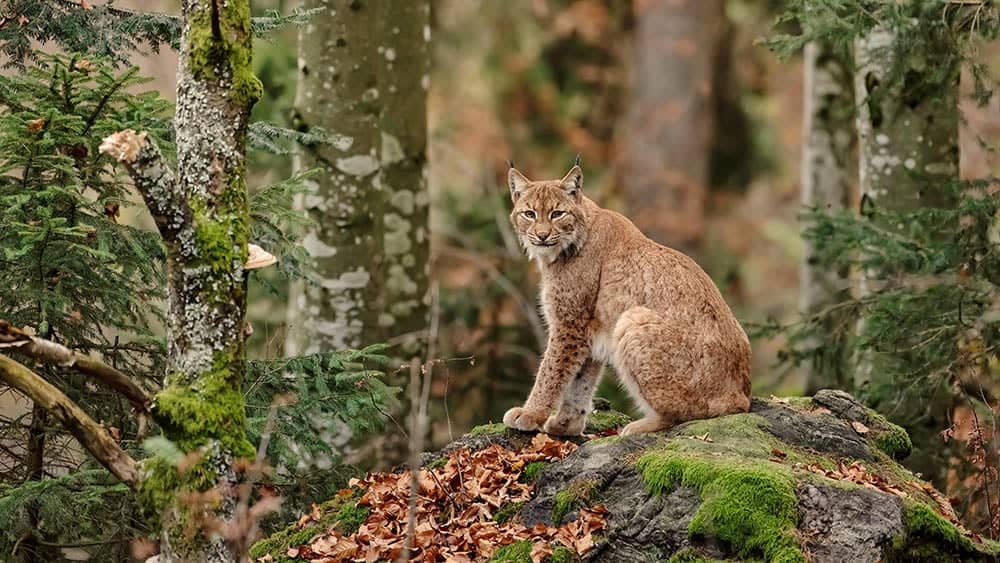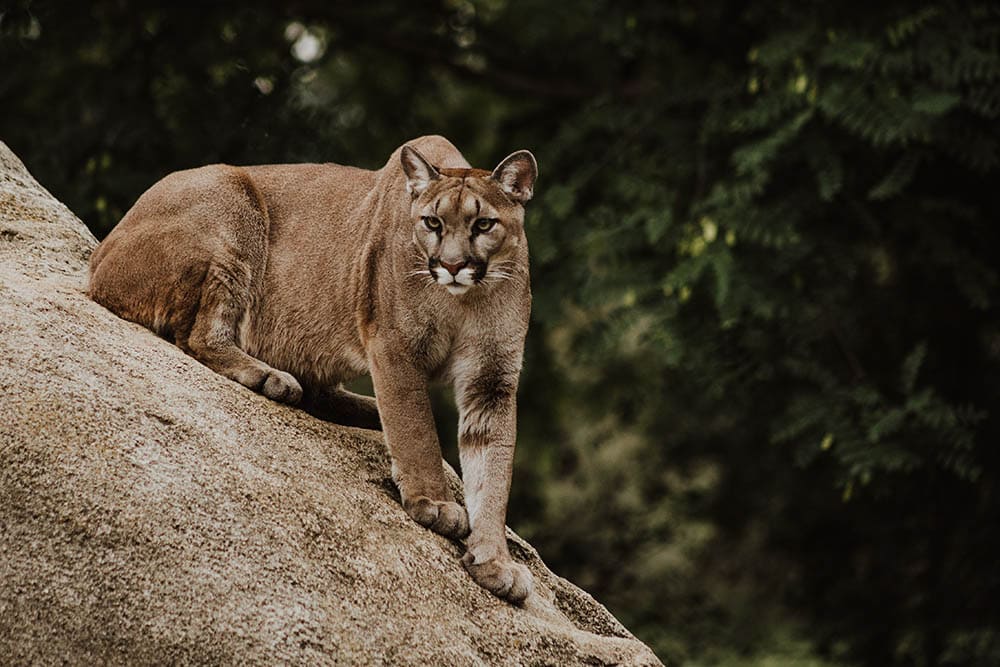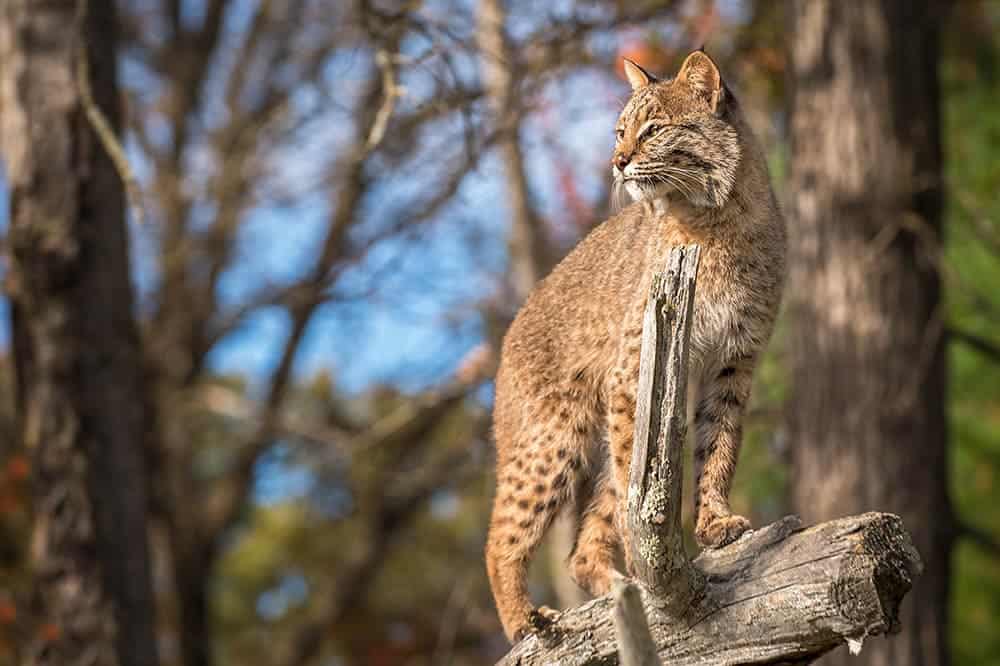Out of staters might think of Massachusetts as a major urban center, with Boston as its center, Harvard sprawling in the distance, and a few revolutionary war battlefields on the fringes. But locals know that once you get outside of the city, the rest of the state contains beautiful wilderness areas and endless forests filled with wildlife. Human towns are really only small islands in a sea of nature throughout most of Massachusetts. With all of that space, it’s not surprising that this state has wildcats.
Right now, only one species of wildcat is living in the state, but two others have historically lived in Massachusetts as well.

Bobcat – The Only Type of Wild Cat in Massachusetts

Bobcats are the most common wild cat in the United States, and Massachusetts is no exception. These beautiful cats are recognizable by their size—around 30 pounds is normal, more than twice the size of an average cat. They can reach nearly four feet in length, including a short “bobbed” tail. They have gray coats with darker speckles, sometimes leaning towards brownish or reddish gray, and their tails will often have a few dark stripes. In the winter, they grow long, shaggy fur with distinctive tufts on their ears, but in warmer months, their fur and tufts are short and smooth.
Unlike many other wild animals, these cats are quite adaptable and actually spread into suburban and possibly urban areas. They’re common in the central and western parts of the state, but they can also be occasionally found throughout the northeast and are beginning to spread into the southeast as well. Although you’re unlikely to see a bobcat in the big city, if you live in a suburban neighborhood with some nature nearby, you might have a resident bobcat.

What Other Cats Have Lived in Massachusetts?
Although the bobcat is the only permanent resident of Massachusetts today, two other species lived in the state in the not-too-distant past, the Canada lynx and the cougar, also known as the puma or mountain lion.
Canada lynxes have never been common in Massachusetts—the state represented the very southernmost part of their range. They aren’t as adaptable as the bobcat, and mostly survive in alpine forests where they can eat snowshoe hares. They tend to be shy and retreat quickly when humans move into an area. Throughout the first few centuries of colonization, lynxes were pushed out of the state into territories northward. By the mid 1800s they were rare, and the last of them left by the early 1900s. Today, they are common in Maine, with a few small populations spreading into the northern parts of Vermont and New Hampshire too.
Lynxes look similar to bobcats, with similar gray speckled fur, tufted ears, and shaggy winter coats. However, they’re longer and lankier than their southern cousins, with huge paws and slimmer builds. They also have distinctive black-tipped tails.
The other cat found in Massachusetts historically was the cougar. These cats were once found all over the United States, where they made lynxes and bobcats look like house pets. Reaching over six feet long and weighing up to 200 pounds, the cougar was a serious threat to livestock and settlers in early Massachusetts. They had tawny coats and could move silently through the forests, stalking their prey.
However, like the lynx, they generally retreated from urban areas, and hunting efforts culled their population more. By the early 1900s, the cougar was extinct east of the Mississippi except for a few isolated pockets.

Will Lynxes and Cougars Ever Return?

These wild cats may be gone, but perhaps not for good. Although there are no plans to reintroduce either species to the state, it isn’t impossible that they might return one day. Because Canada lynxes are so reclusive and aren’t known to range long distances, they’d likely need a reintroduction program to set up a population in the state.
Cougars are a different matter. These cats sometimes range hundreds or thousands of miles. In fact, verified scat and tracks have been found in the Quabbin Reservoir in western Massachusetts twice in the past few decades—once in 1997 and once in 2011. It’s likely that this enterprising cougar trekked all the way from South Dakota. Although more cougars could take up residence in the state, most of these wanderers are young males, so we’re still a long way from a breeding population.

Conclusion
Today, only one species of wild cat is found in Massachusetts. The bobcat is a hardy, adaptable, and beautiful cat species that might be living in your own backyard. But Massachusetts has potential for more. Maybe in the future other wild cat species will live in the state.
See Also:
Featured Image Credit: Geoffrey Kuchera, Shutterstock
